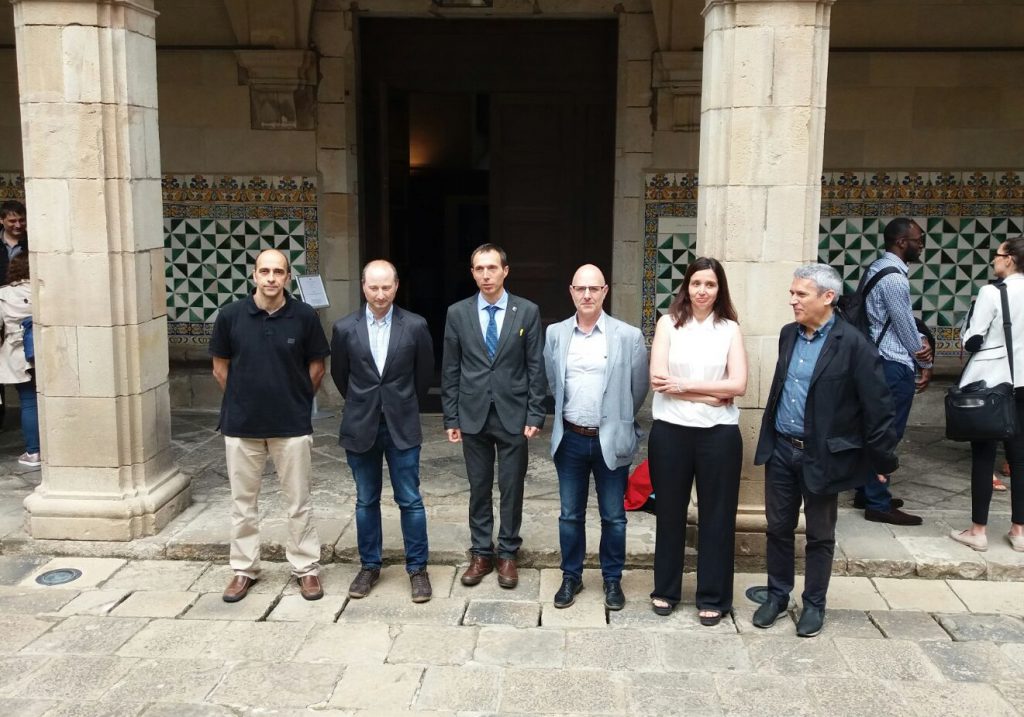08/05/2018
CYBERCAT is created as the interuniversity centre for research into computer security and data privacy
The centre brings together 7 groups from 6 Catalan universities, the URV, UOC, UdL, UPC, UPF and UAB, along with more than 100 researchers coordinated by the Universitat Rovira i Virgili’s CRISES group

The centre brings together 7 groups from 6 Catalan universities, the URV, UOC, UdL, UPC, UPF and UAB, along with more than 100 researchers coordinated by the Universitat Rovira i Virgili’s CRISES group
Cybersecurity is a major concern for modern society; IT systems are fundamental to modern life and any malfunction can bring everything to a standstill. In recent years, cyberattacks and thefts of personal data have continued to increase and businesses have become aware of how important cybersecurity is to their reputations. This has also led to an increase in the number of jobs in this field and in the demand for experts to fill them.
This situation led to the presentation on 8 May of CYBERCAT, the Cybersecurity Research Centre of Catalonia. It is an interuniversity research centre made up of six universities, the URV, UOC, UdL, UPC, UPF and UAB, and is coordinated by the URV. It involves Catalan research groups working on security technologies and data privacy and brings together more than 100 of the country’s researchers and experts in the field.
It is the first Catalan research centre to bring together all the groups currently researching computer security and data privacy. The aim is for it to become a leading national and international research centre. The groups’ objectives are to obtain funding, become more visible and act as a bridge between the industry and government. They also want to formalise and strengthen collaboration in doctoral programmes, reinforce and expand high level information in these ambits, and consolidate the existing research relations between the participating Catalan universities.
Intensifying joint work
The members of these research groups already collaborate in joint scientific research articles in multidisciplinary research projects, thesis supervision, etc. Once the centre is fully up and running, these relations will intensify. Of particular note among its initiatives are projects relating to smart cities and the development of transport systems involving public participation. Also important is their work in cryptography, data anonymity, and the creation of technologies that meet the requirements of the new European General Data Protection Regulation, which comes into force in May 2018.
Two main principles guide the research conducted by CYBERCAT: 1) to minimize the information gathered on users whilst ensuring a balance between security and privacy; and 2) to design security protocols that benefit everyone so that no participant is tempted to miss them out.
The CYBERCAT members
The CRISES group, led by the researcher Josep Domingo-Ferrer of the Universitat Rovira i Virgili, will coordinate the new centre, which also includes the following research groups: the KISON group, coordinated by David Megías from the Universitat Oberta de Catalunya; the ISG group, coordinated by the researcher Miquel Soriano from the Universitat Politècnica de Catalunya and, from the same university, the MAK group, coordinated by Jorge Villar; the C&G research group at the Universitat de Lleida, coordinated by Josep M. Miret; the SENDA group, represented by Jordi Herrera, from the Universitat Autònoma de Barcelona, and the WICOM group, represented by the researcher Vanesa Daza, from the Universitat Pompeu Fabra.
More news about: Josep Domingo-Ferrer
